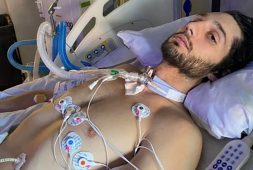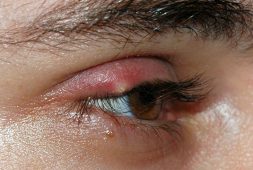
Getting a restful night of sleep isn’t always easy. In fact, higher levels of stress and anxiety can make even the deepest sleepers have disturbances in their circadian rhythms. But there might be some comfort knowing that if you have noticed issues with your sleep lately, you are not alone. Dr. Raj Dasgupta, who is a board-certified sleep medicine physician, has a number of suggestions that will give you a better night’s sleep.
Dr. Dasgupta is also the assistant program director of the Department of Internal Medicine at the University of Southern California, as well as a certified board member of the Medical Review Board for the publication, Prevention.
According to Dr. Dasgupta, there are a number of things that can cause sleep disturbances like anxiety, sickness, issues with money, too much screen time, and tons of other worries. But thankfully he also suggests 7 helpful dos and don’ts that will have you sleeping better in no time.
1. Take A Daytime Nap
While taking a nap in the middle of the day might sound counterintuitive, it can actually help set the tone for a better night’s sleep. Dr. Dasgupta shares, “If you are sleep deprived, then I am a big fan of what we call a power nap. It’s about the timing of the nap, which is sometime between noon and 2 p.m.” Another issue to consider is to keep your power naps to around 20 minutes max because anything more and “you’ll feel groggy.”
He even suggests a power nap method that he calls the ‘caffeine nap.’ This method has you drink a cup of coffee or tea before taking a nap, then allowing the caffeine to naturally wake you around 20 minutes after you’ve dozed off. He does warn that those that have issues with insomnia shouldn’t nap at all. He says, “It takes away your drive to sleep at night. The more that you stay awake during the day, the more you want to sleep at night.”
2. Watch Your Caffeine Intake
Speaking of caffeine, according to the NCA National Coffee Association blog, at least 63% of American adults begin their day with at least one cup of coffee in the morning. But the problem is that having a coffee habit isn’t always the best when it comes to sleep. Dr. Dasgupta cites, “There is some alerting effect that you can have, maybe after one or two cups. But after that third or fourth cup, you’re going to get all of the negative side effects of caffeine and not the alerting.” If you do happen to drink too much caffeine in a day, consider cutting back. This also goes for other drinks that have caffeine like sodas and teas.
3. Don’t Abruptly Start or Stop Sleep Medications
For patients that suffer from insomnia and take medication to help, Dr. Dasgupta suggests to check their intake of medication. “For those of you who are on medications for insomnia, I wouldn’t just cold-turkey these medications. There are certain sleep aids that, if you’re going to stop it, you may want to taper it off.” And this also goes for patients that are attempting to go on sleep meds as well. While there are a number of sleep aids or over-the-counter solutions to choose from, they should always be taken with caution. It’s important to consult with your doctor first before either starting or quitting these types of meds. Your physician will know what is best for your particular case.
4. Practice Responsible Snacking
Many people don’t realize how important their diet is to their quality of sleep. In fact, Dr. Dasgupta clarifies, “When we talk about what will give you poorer sleep at night, it’s eating late. You don’t want to eat two hours before going to bed.” The reason behind this is because individuals that eat close to bedtime tend to get heartburn, which then causes sleep disturbances and awakenings in the middle of the night. “You won’t get to those deeper stages of sleep. When you eat really makes a huge difference,” he adds. So that you don’t find yourself suffering from sleep disturbances, don’t snack too close to bedtime and be sure to avoid foods that are known to cause of aggravate heartburn, like chocolate, caffeine and tomatoes.
5. Don’t Make Alcohol Your Sleep Aid
Some people actually depend on alcohol to help them get a better night of sleep, but while your slight or full-on buzz might make you sleepy at first, it’s still not a good choice. Dr. Dasgupta explained, “The downside of alcohol is going to be multiple awakenings and arousals the second half of the night.” Alcohol can cause disruptions with a person’s circadian rhythm, as well as causing them to wake up to use the bathroom making alcohol the main reason behind a bad night’s sleep. Dr. Dasgupta reiterates, “I’m not trying to say don’t drink at all, but if you’re using alcohol as a sleeping aid, that’s not a good thing.”
6. Try Melatonin, But Use It Properly
Melatonin is a popular choice for those with sleep issues or insomnia, but it should still be used with caution. And since actual melatonin is an organic compound produced by the body, at night normally, taking too much artificial melatonin can throw off the body’s natural production and balance, creating issues with sleep. According to Dr. Dasgupta, “Take melatonin two hours before your desired bedtime” since drinking it too late can also throw off one’s sleep schedule. He adds, “It really helps shift your circadian rhythm. It’s all about the timing, not the dose amount.”
7. Limit Bedtime Screen Time
With the overuse of technological gadgets happening these days, people forget that limiting their screen time before bed can have a negative impact on their sleep. Dr. Dasgupta explains, “You’ve got to put technology away as much as possible, especially at night.” Couple this with most people watching the evening news or using their TVs for other shows, the blue light that’s emitted by the screen can add to the difficulty with sleep and rest. Dr. Dasgupta expounds, “The one that suppresses melatonin the most is blue light.” He suggests that when using your mobile, watching TV or using any other gadget at night, opt to put them on night mode or maybe don’t use them at all. Try reading a book or meditating instead. You never know, you might just have the best sleep of your life.



